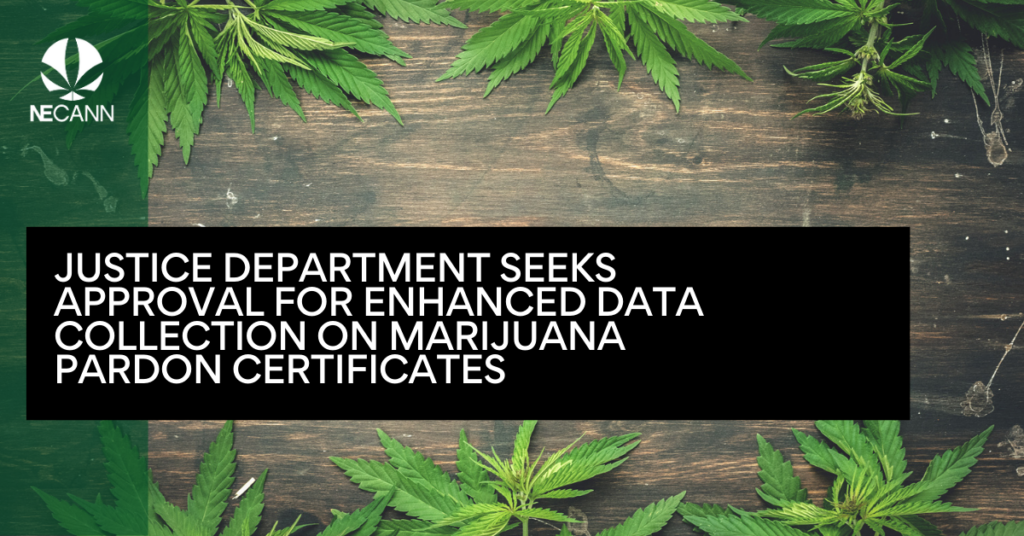In a move to bolster its data collection efforts related to marijuana pardon certificates, the Justice Department is seeking White House approval to expand the information it gathers under President Joe Biden’s recent clemency proclamation. The effort aims to provide statistical analysis of the demographics of pardon recipients and applicants under the expanded initiative, including those with federal cannabis possession offenses on federal lands.
The Department of Justice’s (DOJ) Office of the Pardon Attorney published a notice in the Federal Register, stating its request for authorization to gather additional information about individuals applying for pardon certificates. This request builds upon the initial data collection from the earlier 2022 cannabis pardon proclamation and aims to accommodate the expanded eligibility criteria introduced in the subsequent presidential proclamation in December.
The second proclamation broadened the statutes of conviction eligible for a pardon, expanded circumstances for eligible pardon recipients, and extended the time frame covered by the pardon. Consequently, the number of individuals eligible to apply for a certificate proving the pardon has increased.
DOJ emphasizes that there is minimal change to the burden on individual applicants. The information collected will continue to include details such as citizenship, the court with jurisdiction over the case, and demographic information. The estimated time for applicants to complete the pardon certificate application and provide necessary information is projected to be an average of 120 minutes.
Although individuals eligible for the pardons do not need to apply for a certificate, the administration introduced this process to offer those seeking formal documentation an opportunity to have their relief officially acknowledged. The Justice Department has already begun issuing certifications and expects an increased applicant pool of roughly 13,000 people, with an annual projection of around 1,500 applicants for certificates.
The president’s pardon itself carries symbolic weight, signaling the administration’s stance against prosecuting low-level marijuana cases. However, it does not expunge records, and individuals are not required to obtain the certification. The process represents an official acknowledgment that relief has been granted to those affected by federal cannabis possession offenses.
Despite the symbolic nature of the pardon, President Biden has faced criticism for inaccurately suggesting that the clemency “expunged” records and led to the release of individuals from prison. Advocates have emphasized that people remain incarcerated for other non-violent marijuana offenses, urging the administration to take further action, including fulfilling Biden’s campaign pledge to decriminalize marijuana.
While the president has not openly supported decriminalization during his first three years in office, he initiated an administrative review into cannabis scheduling. The U.S. Department of Health and Human Services (HHS) recommended moving marijuana from Schedule I to Schedule III of the Controlled Substances Act (CSA), leaving the final decision to the Drug Enforcement Administration (DEA).
Biden’s emphasis on the mass cannabis pardon suggests an awareness of the political popularity of marijuana reform. Recent polls indicate a significant increase in voters’ favorable impression of the president following news of the rescheduling review. This includes a notable shift in favorability among young voters aged 18-25, a demographic crucial to his reelection bid.
As the Justice Department seeks enhanced data collection approval, the evolving landscape of cannabis-related pardons and the broader discussions around marijuana reform continue to shape the intersection of federal policy, criminal justice, and public perception.




